Mario Vargas Llosa
The Discreet Hero
To the memory of my friend Javier Silva Ruete
Our beautiful task is to imagine there is a labyrinth and a thread.
Jorge Luis Borges, The Fables Thread
Felcito Yanaqu, the owner of the Narihual Transport Company, left his house that morning, as he did every morning Monday to Saturday, at exactly seven thirty, after doing half an hour of qigong, taking a cold shower, and preparing his usual breakfast: coffee with goats milk and toast with butter and a few drops of raw chancaca honey. He lived in the center of Piura, and on Calle Arequipa the noise of the city had already erupted, the high sidewalks filled with people going to the office or the market, or taking their children to school. Some devout old women were on their way to the cathedral for eight oclock Mass. Peddlers hawked their wares: molasses candies, lollipops, plantain chips, empanadas, and all kinds of snacks; and Lucindo the blind man, with the alms can at his feet, had already settled in at the corner under the eaves of the colonial house. Everything just as it had been every day from time immemorial.
With one exception: This morning someone had attached to the old studded wooden door of his house, at the height of the bronze knocker, a blue envelope on which the name of the owner, DON FELCITO YANAQU, was clearly written in capital letters. As far as he could recall, it was the first time anyone had left him a letter hanging this way, like a judicial notice or a fine. Normally the mailman would slide a letter through the slot in the door. He took down the letter, opened the envelope, and began to read, moving his lips as he did so.
Seor Yanaqu:
The fact that your Narihual Transport Company is doing so well is a source of pride for Piura and Piurans. But also a risk, since every successful business is at risk of being ravaged and vandalized by resentful, envious people and other undesirable types, and as you know very well, we have plenty of them here. But dont worry. Our organization will take care of protecting Narihual Transport, along with you and your worthy family, against any accident, unpleasantness, or threat from criminal elements. Our compensation for this work is $500 a month (a modest sum to protect your inheritance, as you can see). Well contact you soon regarding forms of payment.
Theres no need for us to emphasize the importance of your utmost discretion with regard to this matter. Everything should be kept strictly between us.
May God keep you.
Instead of a signature, the letter had a rough drawing of what seemed to be a spider.
Don Felcito read it a few more times. The letter, covered in inkblots, was written in an irregular hand. He was surprised, amused, and had the vague feeling it was a joke in bad taste. He crumpled the letter and envelope and was about to toss them into the trash basket at Lucindo the blind mans corner. But then he changed his mind, smoothed it out, and put it in his pocket.
There were a dozen blocks between his house on Calle Arequipa and his office on Avenida Snchez Cerro. He usually used this time to prepare for the days appointments as he walked, but today he also turned over in his mind the letter with the spider. Should he take it seriously? Go to the police and file a complaint? The blackmailers said theyd get in touch regarding forms of payment. Would it be better to wait until they did before going to the police? Maybe it was nothing but an idle joke intended to harass him. It was certainly true that for some time now crime had been on the rise in Piura: break-ins, muggings, and even kidnappings, people said, settled quietly by the families of white children in El Chipe and Los Ejidos. He felt unsettled and indecisive, but he was sure about at least one thing: Under no circumstances and not for any reason would he give a cent to those gangsters. And once again, as he had so many times in his life, Felcito recalled his fathers dying words: Never let anybody walk all over you, son. This advice is the only inheritance youll have. Hed paid attention and never let anybody walk all over him. And with more than fifty years behind him, he was too old now to change his ways. He was so caught up in these thoughts that he barely nodded a greeting to Joaqun Ramos, the reciter of poetry, and walked even faster; on other occasions he would stop to exchange a few words with that unrepentant bohemian, who had probably spent the night in some dive and was only now going home, his eyes glassy, wearing his usual monocle and tugging at the young she-goat he called his gazelle.
When he reached the offices of the Narihual Transport Company, the buses to Sullana, Talara, Tumbes, Chulucanas, Morropn, Catacaos, La Unin, Sechura, and Bayvar had already left, on schedule, all with a good number of passengers, as had the jitneys to Chiclayo and the vans to Paita. There was a handful of people dispatching packages or verifying the schedules of the afternoon buses and jitneys. His secretary, Josefita of the broad hips, flirtatious eyes, and low-cut blouses, had already placed the list of the days appointments and commitments on his desk, along with the thermos of coffee hed drink throughout the morning until it was time for lunch.
Whats wrong, Boss? she greeted him. Why that face? Did you have bad dreams last night?
Minor problems, he replied as he took off his hat and jacket, hung them on the rack, and sat down. But he stood up immediately and put them on again, as if hed remembered something very urgent.
Ill be back soon, he said to his secretary on his way to the door. Im going to the police station to file a complaint.
Did thieves break in? Josefitas large, lively, protruding eyes opened wide. It happens all the time in Piura nowadays.
No, no, Ill tell you about it later.
With resolute steps, Felcito headed for the police station a few blocks from his office, right on Avenida Snchez Cerro. It was still early and the heat was tolerable, but he knew that in less than an hour these sidewalks lined with travel agencies and transport companies would begin to swelter, and hed go back to the office in a sweat. Miguel and Tiburcio, his sons, had often told him he was crazy to always wear a jacket, vest, and hat in a city where everyone, rich or poor, spent the entire year in shirtsleeves or a guayabera. But since he had founded Narihual Transport, the pride of his life, he had never abandoned those items meant to preserve propriety; winter or summer he always wore a hat, jacket, vest, and tie with its miniature knot. He was a small, very thin man, frugal and hardworking, who, in Yapatera, where he was born, and in Chulucanas, where he attended elementary school, had never worn shoes. He began to only when his father brought him to Piura. He was fifty-five years old and had maintained his health, industriousness, and agility. He thought his good physical condition was due to the morning qigong exercises his late friend, the storekeeper Lau, had taught him. It was the only sport hed ever engaged in besides walking, if those slow-motion movements that were, more than an exercise for the muscles, a distinctive, scientific way of breathing, could be called a sport. By the time he reached the police station he was furious. Joke or no joke, whoever wrote that letter was making him waste his morning.
The interior of the station was an oven, and since all the windows were closed, the light was very dim. There was a fan at the entrance, but it wasnt working. The police officer at the reception desk, a beardless young man, asked how he could help him.
Id like to speak to the chief, please, said Felcito, handing him his card.
Hes on vacation for a few days, the officer explained. If you like, Sergeant Lituma can take care of you. Hes in charge of the station for now.

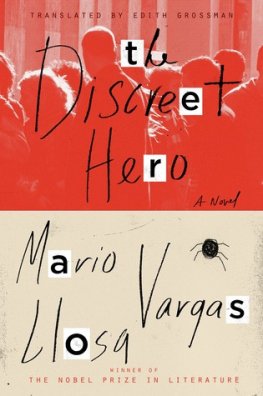


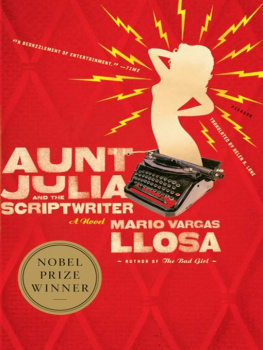


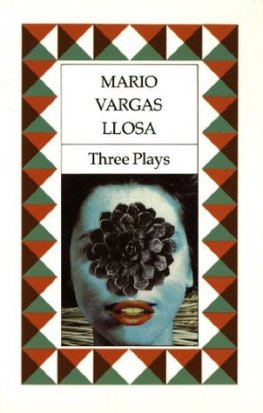
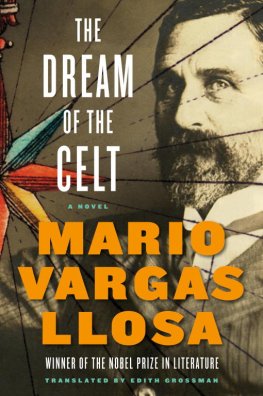


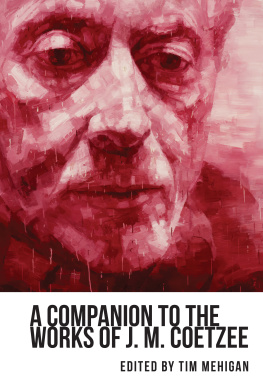
![Mario Vargas Llosa [Mario Vargas Llosa] - Captain Pantoja and the Special Service](/uploads/posts/book/142220/thumbs/mario-vargas-llosa-mario-vargas-llosa-captain.jpg)

